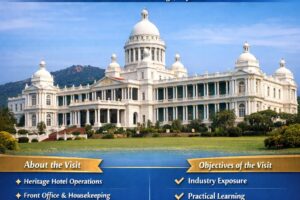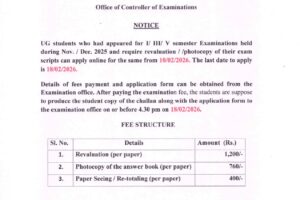RESEARCH PROTOCOL DEVELOPMENT
PREAMBLE- The department of M. Com had an invited lecture by Dr. Divya B.S,
Assistant Professor, HOD and Coordinator for UG &PG PG Centre in Economics, Government College for Women (Autonomous) Mandya on 19/10/2019 on the topic Research Protocol Development to the students of these departments.
OBJECTIVES OF THE INVITED LECTURE
- To provide the students an insight on Good Research.
- To choose a topic for a research
- To understand the methodology to collect the data
- To provide knowledge on writing a research article.
The invited lecture was attended by 13 students of Economics for the lecture as they have Research Methodology and Data Analysis as a part of their curriculum. Dr. Divya B.S, the resource person during her interaction with the students shared her experience and knowledge on the following issues
How to do a Good Research?
- Systematic in nature.
- Empirical and replicable in nature.
- According to plans.
- Assumptions should not be based on the false bases or judgments.
- Relevant to what is required.
- Properly researched with authentic data.
- Well structured.
- Include enough citations and references.
- Conclusion should be strong and well explained.
Requisites for Good Researcher
- The researcher should be a votary of truth, truth should be his goal.
- The researcher should be able to dispel prejudice.
- The researcher should not conceive any pre-conceived notion; rather they should maintain objectivity while gathering information.
- The researcher should be capable of gathering accurate and in-depth information from the respondents.
- The researcher should be a keen observer of the phenomena and should not be complacent with approximates.
- They should always maintain precision and must try to avoid unnecessary details.
- They must analyze and interpret the collected information with a positive spirit and in the proper sense, notwithstanding his personal requirement or benefit.
- They should be able to utilize his time properly in a balanced manner.
- The researcher should not only be careful in selecting the research tools but also properly trained so as to use these tools to procure reliable and valid data.
- The researcher should also develop proper communicative skill.
- Knowledge in the language of the respondents will be of immense help for the researcher. This will enable him not only to communicate the questions properly but also to cognize the responses properly.
- A good researcher will always be well behaved.
- Before arriving to the topic of choosing a research topic, the speaker explained the types of research, collection of data under each type and the steps involved in research process. There are six types of research-Qualitative Research, Quantitative Research, Descriptive research, Applied Research, Case Study and Survey Method
The steps involved in research process
- Selection of Research Problem– The characteristics involved are Personal interest, Resources Availability, Researcher Knowledge, Guide’s interest, Data Availability and Relevant topic/burning issues.
- Selection of Good Research Topic
- Research topic must be very clear and easy to understand. It should not distract people.
- If a topic is well defined is the only way to successful research. The topic should not create doubt and double impression.
- Easy language is a key to success. Use technical words if necessary, otherwise focus of simplicity.
- Research title should be according to the rules of titling. There are different rules of titling, a researcher must aware before writing a research title.
- While selecting a research topic current importance of a researcher should also be considered. Topic should not be obsolete and it should have great importance in the current day.
- Topic should not hurt the feelings of any person’s caste creed, language, religion and tastes
- Literature Review- It is a survey of scholarly sources (such as books, journal articles, and theses) on a particular topic. It gives an overview of key findings, concepts and developments in relation to a research problem or question.
Steps to Follow while Collecting Literature Review
- Collect and evaluate literature
- What question or problem is the author addressing?
- What are the key concepts and how are they defined?
- What are the key theories, models and methods? Does the research use established frameworks or take an innovative approach?
- What are the results and conclusions of the study?
- How does the publication relate to other literature in the field? Does it confirm, add to, or challenge established knowledge?
- How does the publication contribute to your understanding of the topic? What are its key insights and arguments?
- What are the strengths and weaknesses of the research?
- Making Hypotheses – When we write the hypothesis, it should be based on the “educated guess” not on known data. The characteristics of making hypotheses is
- The question comes first.
- A hypothesis is a statement, not a question.
- Make it clear
- Keep the variables in mind.
- Make sure the hypothesis is “testable”
- Preparing the research design- Once we define hypothesis, we need to prepare a research design. The requisites are to prepare the Objectives of the research study; Means of obtaining the information; Tools for data collection; Data analysis (qualitative and quantitative); Time available for each stage of the research; and Cost involved for the research.
- Designing a Sample- There are two types of sampling- Probability and Non-probability. Under Probability, we have Simple random sampling, Stratified random sampling and Systematic Sampling. Under Non-probability sampling we have Convenience Sampling, Quota sampling, Judgmental sampling and Snowball sampling.
- Data Collection– There are two types of Data collection – Primary Data Collection and Secondary data collection.
Under Primary data Collection, the data can be collected through Questionnaire, Observation, Interview and Schedule. Under Secondary data collection, the data can be collected through Review of literature, Official and non-official reports and Library approach.
The speaker further explained the types of questionnaire. They are of two types open ended and close ended
- Data Analysis– They are divided into two main Categories- Data Processing and Data Exposition. Under Data processing it is subdivided into Data collection, Data editing, Data coding, Data classification, Data tabulation, Data presentation and Data measurement. Under Data Exposition it is subdivided into Description, Explanation, Narration, Conclusion/Findings, and Recommendations/Suggestions
- Hypothesis Testing– The Hypothesis is an assumption which is tested to check whether the inference drawn from the sample of data stand true for the entire population or not.
The Null Hypothesis denoted by H0 asserts that there is no true difference between the sample of data and the population parameter and that the difference is accidental which is caused due to the fluctuations in sampling. Thus, a null hypothesis states that there is no difference between the assumed and actual value of the parameter. The alternative hypothesis denoted by H1 is the other hypothesis about the population, which stands true if the null hypothesis is rejected. Thus, if we reject H0 then the alternative hypothesis H1 gets accepted.
9.Sample size- In truth, there is no magic number that makes a sample good or valid.” A reliable survey is consistent and each time you conduct it, you get, roughly, the same information. … As a general rule, sample sizes of 200 to 300 respondents provide an acceptable margin of error and fall before the point of diminishing returns.
- Bibliography- A bibliography is a list of works (such as books and articles) written on a particular subject or by a particular author.
- Writing a research article-The speaker explained the steps of writing research paper which are Abstract with key words, Introduction, Literature review, Objectives, Hypothesis if needed, Methodology, Analysis and Interpretation and Suggestions or Recommendations and Conclusion.
The session ended with students clearing their doubts in choosing research topics and research methodology.
OUTCOME OF THE LECTURE
The lecture was knowledgeable and beneficial for the students as they will have projects to undertake in IV semester and the insights provided by the resource person shall help the students in their publications, in getting engaged in learning process, improve their creativity, learnt analytical skills and they will learn to think divergently i.e. think out of the box.






